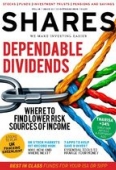Archived article
Please note that tax, investment, pension and ISA rules can change and the information and any views contained in this article may now be inaccurate.
FTSE 250 hits all-time high

Mid caps could be running out of momentum as fears over the potential impact of Brexit increase and the commodities and currency driven tailwinds currently driving them elapse.
Shares in the FTSE 250, the UK index for mid-sized businesses, hit new all-time highs in early October 2016, recovering heavy losses soon after the UK voted to leave the European Union.
Year-to-date gains on the mid cap index, excluding dividends, are up 5% at 5 October 2016 and the blue chip FTSE 100 index is 13% higher – also close to all-time highs.
Hot commodities
Commodity stocks have been among the key drivers of returns in equity markets this year and have also played a part in gains on the mid cap index. Boasting only 16 companies in the materials sector, the FTSE 250 has still received a decent boost from these stocks because year-to-date gains are very high, at around 72%.
There are some standout performers within this group. Big gainers include gold and silver miner Hochschild (HOC), up 439%; steel, coal and vanadium business Evraz (EVR), up 153%; and copper miner Vedanta (VED), up 124%.
Financials are the largest component of the FTSE 250, representing around a quarter of the index according to FTSE data.
Year-to-date, financials have gained 5.6% and the biggest winners have almost zero exposure to the UK economy.
Georgian bank BGEO (BGEO) is the biggest winner, up 59.3%, followed by asset manager Ashmore (ASHM) and investment company Templeton Emerging Markets (TEM). The latter two companies both invest in assets overseas.
Information Technology (IT) has been another of the better performing sectors. Under the Global Industry Classification Standards (GICS), which we used for this article, distribution stocks Premier Farnell (PFL) and Electrocomponents (ECM) are included in the IT category and are the sector’s biggest gainers.
Farnell gained 72% because of a takeover by US electronics giant Avnet (AVT:NYSE), while Electrocomponents, up 103%, has delivered an impressive turnaround under new chief executive Lindsley Ruth. Another name with a technology focus, although actually in the media sector, is property portal Zoopla (ZPLA), up 60%.
Out of all of these gainers, only Zoopla does a significant share of its business in the UK – in contrast to most of the bigger losers.
Sports Direct (SPD), down 48%; estate agent Countrywide (CWD), 46% lower; and Restaurant Group (RTN) are all UK domestic businesses in relatively cyclical sectors.
Overseas benefits
Differing fortunes for international and domestic-focused stocks is mainly because the economic shock of the UK’s vote to leave the EU is expected to have a larger impact on the UK than elsewhere.
Exchange rate moves have also been a key factor in 2016, explaining some of the gains in the shares of internationally-focused businesses.
Around 50% of the profit at FTSE 250 companies on aggregate is earned overseas and a weaker UK currency increases the value of these profits to UK investors, and tends to increase the companies’ share prices. The vast majority of companies on the UK stock market have their shares priced in sterling.
Fluctuations in commodities and currencies are unlikely to drive the index forever and some investors are already warning the mid cap rally could soon come to an end
Currency impact
Paper profits may not be all they seem at first glance.
Measured in dollars, the FTSE 250 is down year-to-date and even the FTSE 100 is up only marginally.
The FTSE 250 index shed 8% in dollar terms, including dividends, versus a 5% gain in sterling terms between 1 January and 5 October 2016. That compares to small gains on the FTSE 100 and MSCI Europe indices in dollar terms and increases on the S&P 500 (US) and Nikkei (Japan).
‘As shocking as the Brexit vote was, its impact so far has been less bad than feared,’ says Wouter Sturkenboom, senior investment strategist for Europe at Russell Investments.
‘Survey data on consumer and producer confidence as well as the housing sector have partly rebounded after steep initial drops. Financial markets too have recovered quickly.
‘We believe, however, that it is too early for investors to let their guard down. Our (GDP) growth expectation of 1% for 2016 remains unchanged. The risk of a recession in the next 18 months has declined but the growth slowdown is still very much in place.
‘Price momentum for equities improved over the third quarter but this was offset by overbought short-term contrarian indicators. With so much economic pain left in store and too much uncertainty hanging over the country, we continue to advocate for underweight UK equities positions in UK domestically exposed risk assets.’ (WC)
Important information:
These articles are provided by Shares magazine which is published by AJ Bell Media, a part of AJ Bell. Shares is not written by AJ Bell.
Shares is provided for your general information and use and is not a personal recommendation to invest. It is not intended to be relied upon by you in making or not making any investment decisions. The investments referred to in these articles will not be suitable for all investors. If in doubt please seek appropriate independent financial advice.
Investors acting on the information in these articles do so at their own risk and AJ Bell Media and its staff do not accept liability for losses suffered by investors as a result of their investment decisions.

 magazine
magazine










